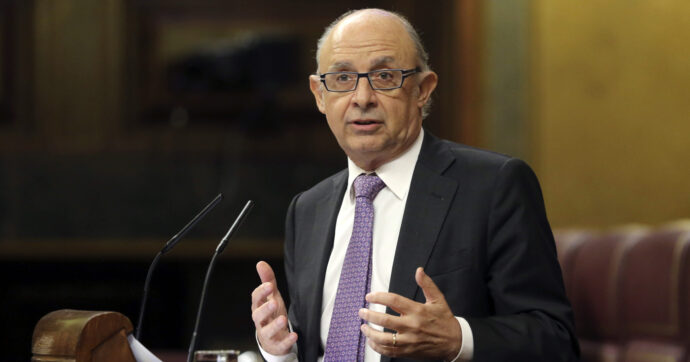Lobbyist favors and VIPs' tax privacy breached (Nadal included): scandal in Spain surrounding former Populist Party minister Montoro


A new scandal has hit Spanish politics. And this time it doesn't involve Pedro Sánchez 's Socialists : at the center of the investigation conducted by the Tarragona court is Cristóbal Montoro , former Finance Minister in the Popular Party governments, first under José María Aznar and then under Mariano Rajoy . Montoro has been formally charged, along with 27 others, with serious crimes such as corruption , influence peddling, public administration fraud, and abuse of power. According to the prosecution, he orchestrated a veritable network of influence to favor certain energy companies—particularly those active in gas and electricity —through tailored reforms, while he served as minister between 2011 and 2018.
The core of the scandal revolves around the Equipo Económico consulting firm, founded by Montoro himself and four former senior officials of the Ministry of Finance . After the Popular Party 's electoral defeat in 2004, Montoro left his ministerial post to become a member of the European Parliament. Two years later, he founded the consulting firm , which, according to the investigation, continued to exert strong influence over the Ministry even after his return to government in 2011.
According to the investigating judge, the firm received payments from large companies—particularly those involved in gas distribution—to obtain legislative changes that benefited them. Two main cases were documented: a 2014 reform that lowered the excise tax on electricity and a 2018 reform that reduced the tax on economic activities (IAE). Both had long been requested by companies in the sector and were finally approved thanks to the firm's intervention.
But the Montoro case isn't limited to legislative favors. Another strand of the investigation—surveyed through internal emails from the Spanish Revenue Agency (AEAT)—revealed how the Ministry of Finance was constantly updated on ongoing tax investigations against politicians, businessmen, celebrities, and even journalists. The information was passed directly to Felipe Martínez Rico , the minister's chief of staff and the brother of one of the founding members of Equipo Económico .
The names involved are prominent: Rodrigo Rato (former IMF director and Minister of Economy, at the center of the black card scandal linked to the misuse of corporate credit cards at Caja Madrid-Bankia), Esperanza Aguirre (former president of the Popular Party in the Community of Madrid), tennis player Rafael Nadal , Baroness Carmen Thyssen , and businessman Demetrio Carceller . Even some of the most sensational cases in Spanish news—such as the Gürtel scandal, which saw the Popular Party convicted of benefiting from illicit funds, and the Pujol case, which engulfed the former president of the Catalan Generalitat —were under the direct observation of the Ministry.
The emails contained confidential exchanges, such as the 2017 transmission of documents related to the investigation into Rodrigo Rato 's assets or Civil Guard reports classified as "confidential notes." This violates Article 95 of the Spanish General Tax Law , which requires absolute confidentiality of tax information, except in the cases of collaboration with judicial authorities.
What made the scandal even more explosive in the public eye was the involvement of internationally renowned figures. The presence of Rafael Nadal , one of the world's most beloved athletes, caused a particular stir: in 2017, the Balearic Islands Revenue Agency opened an investigation into his advertising revenue, managed by the company Goramendi Siglo XXI SLU , on suspicion that part of the proceeds were being transferred to the individual for personal income tax (IRPEF). According to the investigation, this information was sent to the minister's office even before the investigation was concluded.
The same fate befell Baroness Carmen Thyssen , a name associated with one of Madrid 's most prestigious museums and international high society. Detailed emails containing confidential tax information were circulating about her too, in a chain of communications that systematically violated tax privacy laws.
And it wasn't just celebrities and politicians. According to investigative sources, journalists and outlets critical of the Rajoy government were also targeted by the Ministry , with the more or less explicit aim of controlling or intimidating inconvenient voices through the instrumental use of tax information . This possible political use of the Revenue Agency fuels suspicions of an authoritarian system disguised as formal legality. This scandal could be just the tip of the iceberg , exposing a murky network of influence, pressure, and illicit exchanges.
Il Fatto Quotidiano





